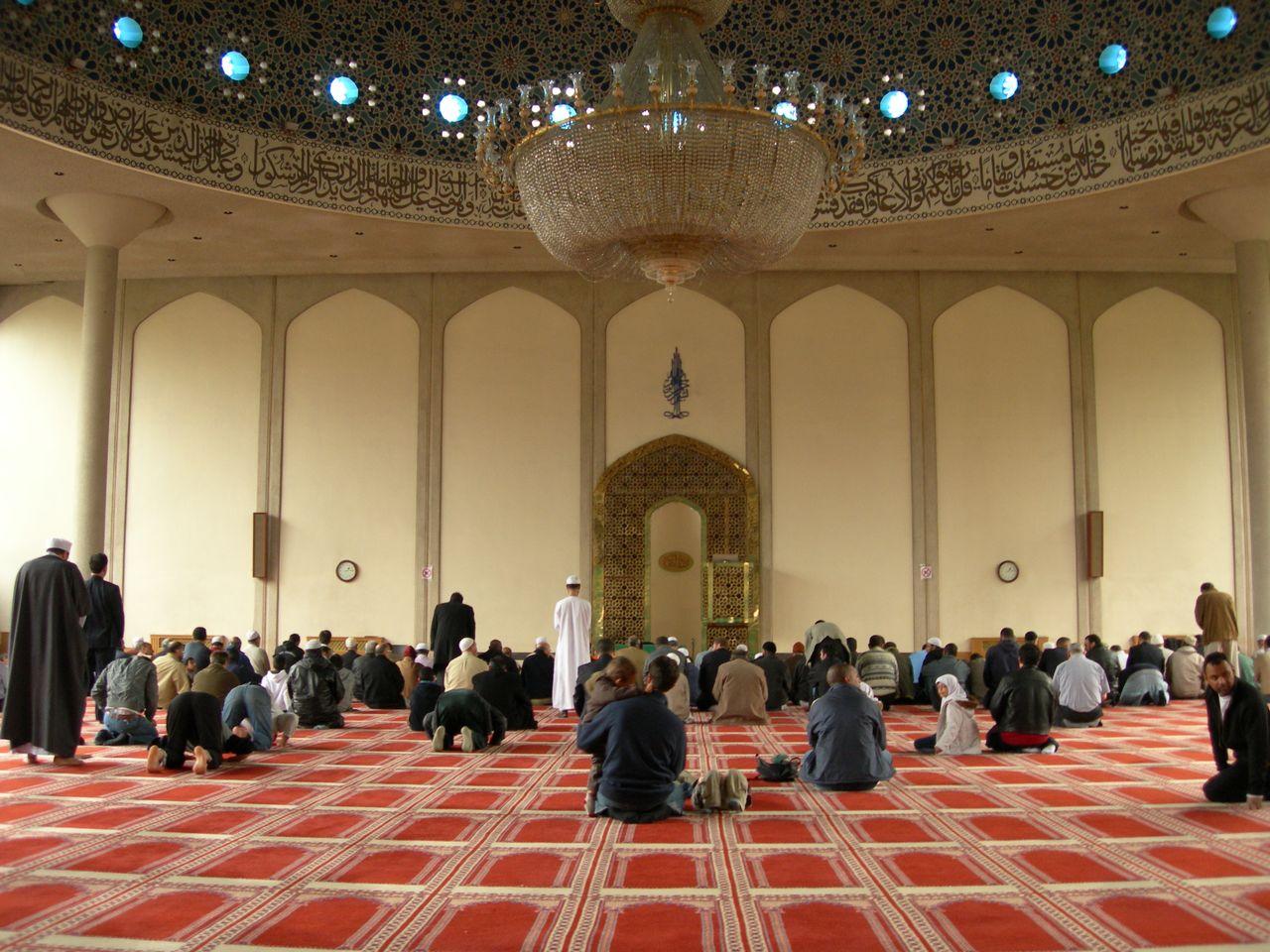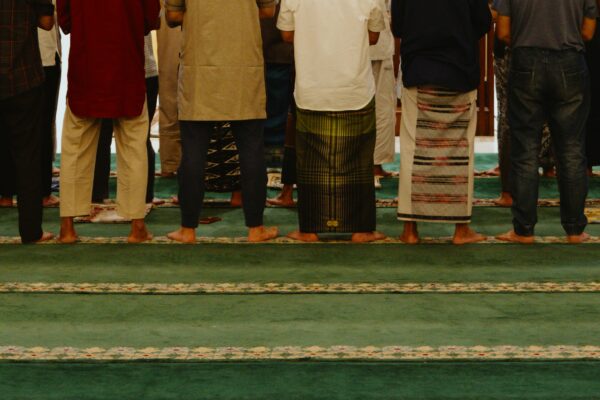Like most Muslims in the West, I often attend events in which scholars and speakers have the platform to preach matters of faith, society, politics and much more to the congregation. But what is the point of attending such events, and what should we be seeking to gain from such lectures? And also, are organisations providing the right level of guidance?
1 – The Islamic significance of congregation and community
The tradition of congregating in Mosques and places of worship is deeply rooted in Islamic heritage. From the time of the Prophet, Muslims have always congregated in small to large gatherings to worship and gain knowledge from a religious authority of sort. As well serving as a means to network with their fellow brothers and sisters in the Muslim community.
2 – Islam stresses the merits of congregational praying and learning
The Messenger of Allah (pbuh) is reported to have said:
“The prayer of one who hears the adhan but does not participate in the congregational prayer of Muslims for no (justifiable) reason at all is worthless.”
And regarding congregational learning…
“There are no group of people that sit together in a house of the houses of Allah reading Allah’s book and studying it between them except that tranquillity will descend upon them, mercy will encompass them, the angels will surround and protect them, and Allah will mention them to those that are with Him (to the highest angels)” – Prophet Muhammad (pbuh)
As time has progressed and the ‘ideological diversity’ of Muslim communities has increased; this vital community institution has somewhat lost its way. And how we approach religious community events, has left the Western Muslim community unable to reach its true spiritual and overall potential.
3 – The wrong intention for attending
Unfortunately, sometimes we sacrifice what we can gain in terms of spirituality and knowledge by making poor decisions. For example attending events based off where our friends are going or sometimes based on convenience and ease. We forget why we are attending, and indirectly reduce this grand platform to a giant social club for our Muslim friends. And whilst the community networking element is vital, it shouldn’t be what stops the main purposes of such events. This has led to many people not being able to benefit properly from lectures and has further added to the issue of compartmentalising our religion. Many young Western Muslims are leaving these lectures, with nothing but a few hours of socialising with their brothers and sisters.
4 – Attending for the right reasons
We should be keen and diligent about attending different lectures that will actually benefit us, based on what our level of understanding is. This means actively looking into who, where, when and what’s giving ‘you’ the best in terms of knowledge, guidance and spirituality.
After all, gaining knowledge and closeness to God should, of course, be every practising Muslim’s primary objective. We should have a clear objective from attending a series of lectures and have the courage to ask organisations to be forthcoming in sharing what the planned lecture series is about.
But most importantly, we need to start implementing what is being said from the pulpit. If we keep going to the mosque and yet keep repeating the same mistakes and sins, there’s obviously something going wrong. There are of course other factors to take into consideration which are outside our control; such as organisations and scholars who may not be delivered to the standard they should be.
5 – Learning from and following the right people and places
The Islamic criteria that we are encouraged to follow is that we listen to and follow the authority amongst us (knowledgeable and pious scholars). The Holy Qur’an states:
“O you who have believed, obey Allah and obey the Messenger and those in authority among you. And if you disagree over anything, refer it to Allah and the Messenger, if you should believe in Allah and the Last Day. That is the best [way] and best in result.” (4:59)
Authority in Islam is measured by knowledge and piety. Piety is measured in a person’s moral characteristics and transcends in what the community receives as guidance. By putting someone in the role of leadership and authority will mean that person reflects the ideals of the community.
“Verily, the most honourable of you with Allah is that (believer) who has At-Taqwa (piety). Verily, Allah is All-Knowing, All-Aware.” (49:13)
Therefore we should take precaution to avoid listening to speakers who are not qualified to be ‘leading’ without fitting the Islamic criteria. It makes sense that untrained speakers or sheikhs devoid of piety will not be able to lead their community towards the right direction.
Muslim organisations consequently carry the responsibility to make sure they’re offering this through their events. Who they invite to talk and lead, should match the criteria as set out by God in the Quran; and as per the Sunnah of the Prophet, his Holy Family and his righteous companions.
In conclusion, it’s important that as Western Muslims continue this historic Islamic tradition of praying and learning in a congregation. On an individual level, it is important to make sure we make an effort to benefit from this religious platform in the right way. It also requires organisations and scholars to strive to ensure they’re fulfilling the religious criteria properly for the benefit of the community.
References and further reading






